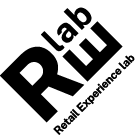The Retail Experience Lab, a research group within the Department of Design at Politecnico di Milano, operates at the intersection of sustainability, retail, and the fashion industry. It develops design tools that help companies transition toward more responsible business models. As part of the PNRR MUSA – Spoke 5 Fashion, Luxury and Design initiative, the Lab developed the Su.Re Toolkit, a participatory tool and activity designed to support fashion brands and retailers in their shift toward sustainable and circular retail models.
The Toolkit is designed to be used in workshop-based settings, such as participatory design sessions or co-design labs. These involve mixed teams composed of facilitators (i.e., the researchers and designers from the Retail Experience Lab) and participants that are representatives from a fashion brand or retail company. The facilitators introduce the strategic and methodological context, present the tools and activities, and guide participants through a structured and action-oriented process.
The Su.Re Toolkit is the tangible outcome of an extensive research project: it is grounded in the analysis and mapping of hundreds of case studies focused on the integration of services within the retail environment. This approach aligns with the concept of servitization, meaning the transformation of retail business models to offer services such as repair, customization, rental, labs, or training. These services enable new consumption behaviors and are central to the development of circular business models in fashion.
The underlying research was translated into a structured database of around 150 service types, categorized according to thematic and operational criteria. The services are grouped into two main areas:
- Environmental Sustainability, with subcategories such as Reduce, Maintenance, Collaborative Consumption, Rethink, Recycle;
- Culture of Sustainability, including Transparency and Traceability, Artisanship and Heritage, Sensibilization, Resources for Retailers.
To activate this knowledge in a workshop setting, the Sure Toolkit employs a six-step funneling technique, allowing for the strategic selection of services most aligned with the brand:
- Mapping key brand traits (e.g., sales channels, supply chain control, market segment);
- Identifying consumer values that drive brand preference, leveraging concepts structured into 8 categories and 30+ entries (e.g., authenticity, inclusivity, innovation);
- Selecting the categories of Environmental Sustainability services that are most compatible with the brand’s model and capabilities;
- Same for categories of Culture of Sustainability services;
- Shortlisting 6 services through a collaborative identification of a set of promising services;
- Conclusive qualitative analysis, discussing potential gains & expectations and risks & pains associated with implementing or improving each service.
An optional but valuable seventh step can be added to consolidate outcomes and set future directions. In this final step, the six selected services are assessed to determine which can be directly integrated into the brand’s design roadmap, and which require preliminary training. For instance, a brand unfamiliar with organizing participatory workshops for customers may need guidance on formats and logistics. This evaluation is structured around a matrix, combining two operational dimensions (i.e., Training and Design) with the toolkit’s thematic areas: Environmental Sustainability and Culture of Sustainability.
In addition, the Sure Toolkit incorporates a dimension of social sustainability. This includes modalities of implementation for services that explicitly aim to generate positive social impact, such as:
- Including vulnerable or marginalized individuals in service delivery;
- Supporting local or global initiatives for collective well-being;
- Promoting social interaction to strengthen social cohesion and resilience through meaningful interpersonal exchange.
The toolkit was developed within the Retail Experience Lab and initially tested internally through a role-playing session. Researchers took on the roles of facilitators and brand participants to simulate a real workshop and assess the clarity of instructions, cards, interfaces, and overall user experience. This internal test helped refine the flow of information, improve explanations, and ensure consistency throughout the process. It was later tested in a real setting through a workshop with the brand Stella McCartney. This session was a significant milestone in validating the toolkit’s real-world applicability in a high-level professional context. The SmC team was hosted at Politecnico di Milano, with some members attending in person and two joining remotely, fully leveraging the hybrid format of the toolkit. One of the key strengths of the Su.Re Toolkit, indeed, lies in its hybrid structure: it can be used both in person and remotely, enabling the active participation of stakeholders located in different geographical areas.
The Sure Toolkit thus acts as a bridge between research and industry—an actionable, flexible, and structured resource enabling brands to rethink their role, orient strategic change, and generate real impact across environmental, cultural, and social dimensions.
The workshop with Stella McCartney took place at Politecnico di Milano and involved the research team led by Valeria M. Iannilli, with Alessandra Spagnoli, Francesca Bonfim Bandeira, Chiara Anceschi, and , Tommaso Elli together with brand representatives Pasquale Coppolella, Rossella Benincasa, Alessia Lazzaretti, Valentina Zorzi, Inês Ribeiro, and Peter Nasielski, supported by CEO Amandine Ohayon and Chief Retail Officer Noemi Zamora.
Request a workshop for your company
If your company is exploring new ways to innovate its retail model through sustainability and service design, we invite you to get in touch. The Retail Experience Lab is currently expanding the research through new partnerships—join us to organize a custom Sure Toolkit workshop tailored to your organization.


